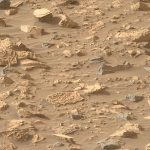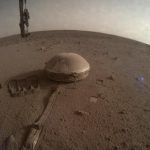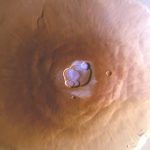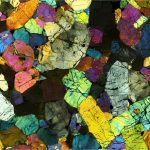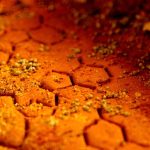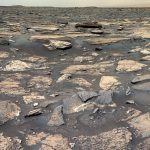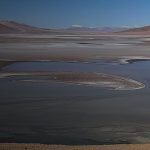Mars hit by space rocks more often than previously thought
NASA's Mars InSight Lander may be retired, but its data is still revealing new insights.
A team of scientists, led by Brown University, found that...
NASA’s Perseverance rover finds ‘popcorn’ rocks on Mars
NASA's Perseverance rover has discovered some strange, "popcorn"-like rocks on Mars. After months of driving, the rover has arrived at a place called "Bright...
Marsquakes: A new way to find underground water on Mars
Scientists from Penn State University have found an exciting new way to search for water deep below the surface of Mars.
Instead of using traditional...
Fish could turn regolith into fertile soil on Mars
What a wonderful arguably simple solution. Here’s the problem, we travel to Mars but how do we feed ourselves?
Sure we can take a load...
Scientists discover water frost on Mars’ tallest volcanoes
Scientists have found patches of water frost on Mars' tallest volcanoes, known as the Tharsis volcanoes.
This discovery challenges previous ideas about the Martian climate...
Scientists discover new insights into Mars’ structure from meteorites
Researchers at the Scripps Institution of Oceanography at UC San Diego have uncovered new information about the structure of Mars by studying meteorites that...
How extreme conditions on Mars could support life
Many people might think that the search for life on Mars ended when NASA's first rovers sent back images of the planet's barren, harsh...
Starlink on Mars: NASA is paying SpaceX to look into the idea
NASA has given the go-ahead for SpaceX to work out a plan to adapt its Starlink broadband internet satellites for use in a Martian...
NASA’s Curiosity rover discovers clues to Mars’ Earth-like past
Scientists using NASA’s Curiosity rover have made a significant discovery on Mars that suggests the planet might once have had conditions similar to Earth.
This...
How methane could be appearing and disappearing on Mars
NASA's Curiosity Mars Rover has brought to light one of the most baffling discoveries on Mars—the presence of methane gas in Gale Crater.
This finding...


